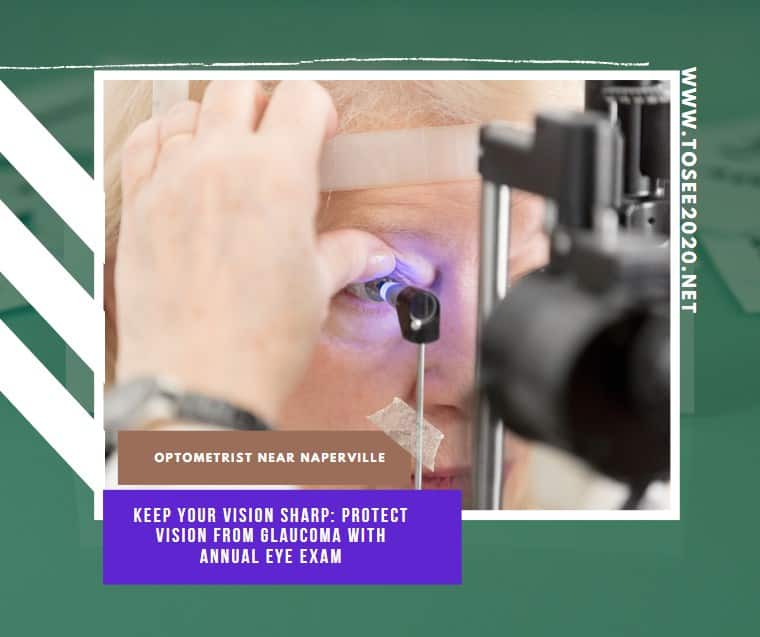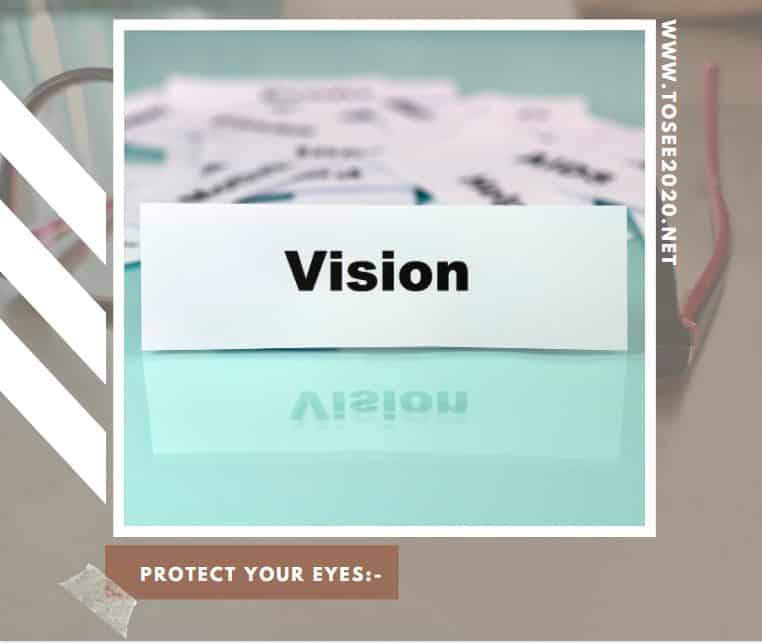Keep Your Vision Sharp: Protect Vision from Glaucoma with Annual Eye Exam
Glaucoma is one of the primary reasons for the loss of sight in the world. It belongs to a set of eye diseases that cause damaging the major vision nerve, the optic nerve. In the early stages of the disease, glaucoma has no symptoms in any way. Glaucoma injures the optic nerve, this nerve takes information from your eye to the brain, so when it’s injured, you possibly will lose your vision.

Regularly, it’s not until the disease is at a higher stage than vision loss becomes obvious, and by then your eyesight may have suffered permanent damage. Therefore, it’s imperative to take measures to defend your vision, even if you have a standard eyesight. An Optometrist near Naperville will be discussing what you can do to prevent glaucoma.
Regular Eye Exams:
Currently, regular eye exams are the most excellent form of prevention against significant glaucoma damage. Detection in the early hours and cautious, enduring treatment can preserve vision in most people. Generally, a visit to an Optometrist to check for glaucoma must be done:
- Before age 40, every two to four years
- From age 40 to age 54, every one to three years
- From age 55 to 64, every one to two years
- After age 65, every six to 12 months
Anybody with high-risk factors needs to be tested every year or two after reaching the age of 35. Those at higher risk comprise people of African descent, people with diabetes, and ones with a family history of glaucoma. You are at increased risk if you have any family member infected with glaucoma.
However, there are more ways to prevent severe blindness and vision loss from glaucoma, which are as follows:
Catch this quiet thief of sight earlier than losing vision. If you are at threat of glaucoma, you should see your Optometrist frequently for eye exams. They can locate the illness in its early stages, then observe and cure it. It’s evenly imperative to take your glaucoma medications accurately as your doctor says to. Defend your eyes from sunlight. There are some facts that the sun’s UV rays possibly will cause a kind of glaucoma. Put on quality polarized sunglasses and a hat while exploring the outdoors. Eat well to see well. Eat an abundance of leafy green vegetables and tinted berries, fruits, and vegetables every day. They include minerals and vitamins that defend your body and eyes. Studies show that eye-healthy foods are improved than vitamins at protection from glaucoma.
Shield your eyes from injury.
Eye injuries can be the reason for glaucoma. For all time wear protecting eyewear for the duration of sports or while working on your home and in your yard. Sleep in an accurate position. If you have glaucoma, evade sleeping with your eye alongside the pillow or on your arm. People who have obstructive sleep apnea (OSA) are at threat of glaucoma, or possibly will have a more serious illness. If you snore a lot or stop breathing all through the night, get tested for OSA. Keep your mouth clean. Modern research links gum disease with optic nerve damage in glaucoma. Brush and floss your teeth every day and see your dentist regularly.
Well-timed Diagnosis and proper treatment are important to Prevent Glaucoma:
While there are no identified ways of preventing glaucoma, loss of sight or major vision loss from glaucoma can be prevented if the disease is identified in the early stages. In its most common form, primary open-angle glaucoma, vision loss is progressive, silent, and slow. It normally affects side vision first (tangential vision) and as it develops, central vision is gone. Glaucoma medications slow the development of glaucoma by reducing prominent intraocular pressure (IOP) to stop damaging the optic nerve. Surgical cures are moreover accessible.

Protect Your Eyes:
Wearing defensive eyewear is essential when engaged in home improvement projects or sports activities. Eye injuries can cause secondary glaucoma or traumatic glaucoma, so protecting your eyes from damage is an additional way to avoid glaucoma. Keep in mind, regular all-inclusive eye exams are the most excellent form of prevention alongside glaucoma and further eye diseases. You can Google “optometrist near me” to get professional services.
Benefits of Exercise:
A habitual program of modest exercise will help your general health, and studies have exposed that sensible exercise such as walking or jogging three or more times every week can have an IOP lowering effect. The advantages of exercise last only as long as you carry on exercising; this is why moderate work out on a routine basis is suggested. Yoga can be helpful, but it’s most excellent to stay away from inverted positions for example headstands and shoulder stands, as these may enlarge IOP. Talk with your Naperville Optometrist if you have particular concerns or questions regarding starting an exercise program.
